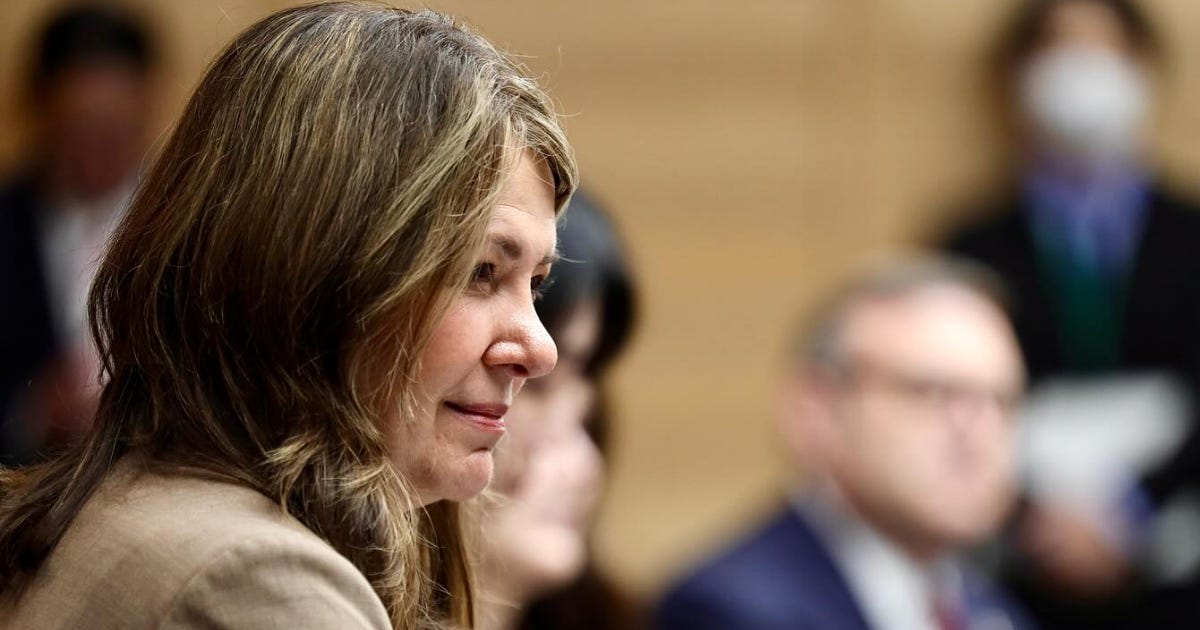Alberta prepares to launch sweeping fall legislative agenda
Premier Danielle Smith’s government has proposed a sweeping legislative agenda and is planning to introduce multiple bills focusing on health-care reform, public safety, labour mobility and more.
Premier Danielle Smith’s government has proposed a sweeping legislative agenda and is planning to introduce more than a dozen bills focusing on health-care reform, public safety, labour mobility and defending provincial jurisdiction.
Government House Leader and Minister of Jobs, Economy, Trade and Immigration Joseph Schow outlined some priorities at a press conference Monday.
“Albertans gave us a job to do, and we are getting it done,” Schow said in a Monday press release. “I am excited to say we are focused on the issues that matter to Albertans, defending our interests with low taxes and regulatory burden, public safety, stronger health care and making life better and safer for all.”
He noted 55 pieces of legislation implemented over the last two years, highlighting specific ones he was proud of.
These include the Alberta Taxpayer Protection Amendment Act, which prevents provincial governments from increasing personal and corporate income tax rates without a referendum. Another example was Bill 29, the Fairness and Safety in Sport Act, which prohibits transgender participation in female sports leagues.
He also highlighted Bill 53, the Compassionate Intervention Act, which allows family members to request treatment orders for adults at risk of causing substantial harm to themselves or others due to substance use or addiction.
For the upcoming session, the government expects to table at least 15 pieces of legislation, including the Regulated Professions Neutrality Act, Health Statutes Amendment Act, Public Safety and Emergency Services Statutes Amendment Act and Red Tape Reduction Statutes Amendment Act.
“The issues that matter most to Albertans are the issues that matter most to us,” Schow said. “Affordability, public safety, healthcare, cutting red tape, and standing up for Albertans will once again become themes that you will see throughout this next session.”
Some upcoming examples highlighted by Schow for the session include the Justice Statutes Amendment Act, which he said “brings further protection for our local elections, ensuring only those who truly care and are serious about representing a community or riding are allowed on the ballot.”
He also said legislation would be forthcoming to protect the rights and freedoms of people in regulated professions, ensuring they do not face discipline for issues unrelated to their work.
The Public Safety and Emergency Services Statutes Amendment Act will lay the groundwork for the new Alberta Sheriffs Police Service, giving sheriffs the same standing as other police officers across the province.
Since 2019, Schow said the province has saved Albertans and Alberta businesses more than $3 billion by cutting red tape, and the Red Tape Reduction Statutes Amendment Act plans to continue that trend.
The government will also implement legislation allowing Albertans to display citizenship markers on provincial identification and driver’s licences.
The fall session may also see the government invoke the notwithstanding clause to shield its legislation on transgender policies and women’s sports from court challenges.
“If necessary, we will use whatever legislative tools are available to us to make sure that those bills stand,” Schow said. “It’s important for us to protect the children of Alberta.”
Alberta NDP Leader Naheed Nenshi will be in the legislative session for the first time, as he was not an elected member of the legislature during previous sessions.
Schow said the UCP government will continue to “be unapologetic in the defence of Alberta’s growth, success and well-being” as it advances its legislative agenda.





Seems to have slipped in the digital ID, under citizenship. Didn't mention also includes healtcae and drivers license. So as an Albertan I now HAVE TO have a cell phone? Will this ID replace the passport? Personally, I believe this is huge and requires more discussion with Albertans, and then Albertans can decide through a referendum vote.